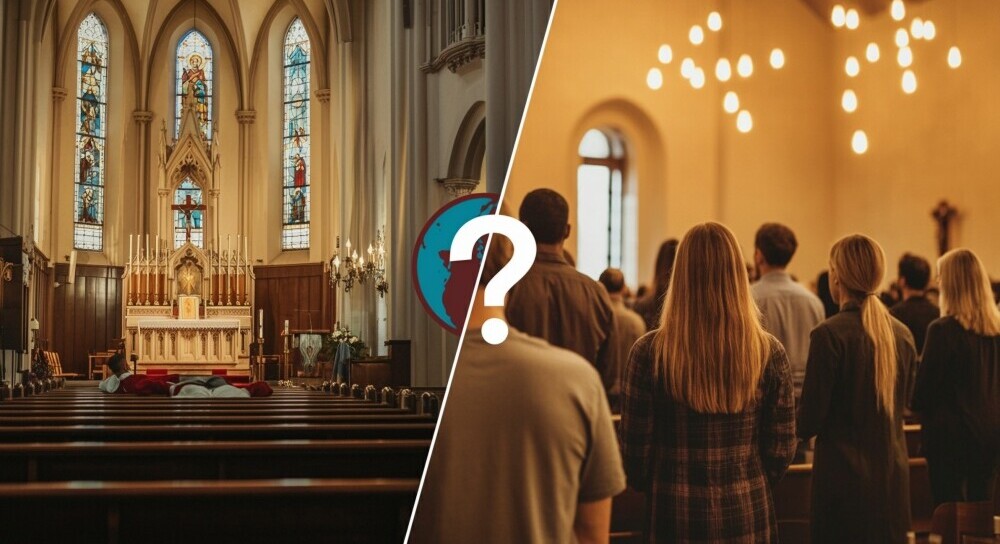
Are Catholics Christians? This question pops up more often than you’d think. Some people assume the answer is “no” because of misunderstandings about Catholic practices and beliefs. But the reality? Catholics are, and always have been, Christians. Let’s explore why this confusion exists and what the truth actually is.
What Makes Someone a Christian?
At its core, being a Christian means believing in Jesus Christ as Lord and Savior. It means accepting the Bible as the Word of God and affirming key doctrines like the Trinity, the Incarnation, and the Resurrection. These are non-negotiables for all Christians—Catholics included.
Catholicism fully embraces these foundational beliefs. In fact, the Catholic Church is the original and universal Church founded by Jesus Christ, with over 1.3 billion members worldwide. It’s not a separate religion or denomination but the oldest expression of Christianity, tracing its roots back to the apostles.
So why do some think otherwise?
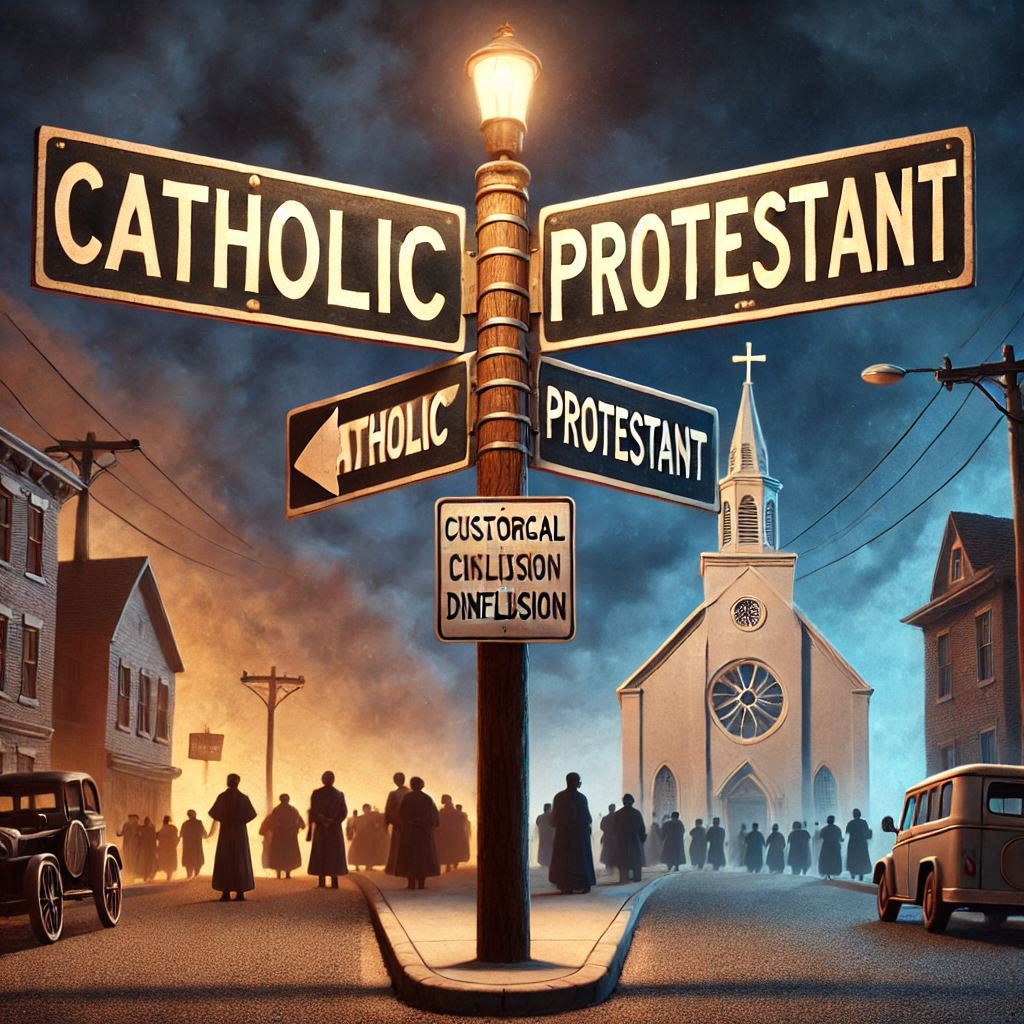
Why the Confusion Exists
The confusion often stems from history. The Protestant Reformation in the 16th century created a split between Catholics and Protestants. Over time, some Protestants started using “Christian” to refer only to themselves, unintentionally (or sometimes intentionally) excluding Catholics.
Cultural misunderstandings also play a role. In casual conversation, people may frame questions like, “Are you Catholic or Christian?”—as though these are mutually exclusive categories. They’re not. This false dichotomy has stuck around, leading to more confusion.
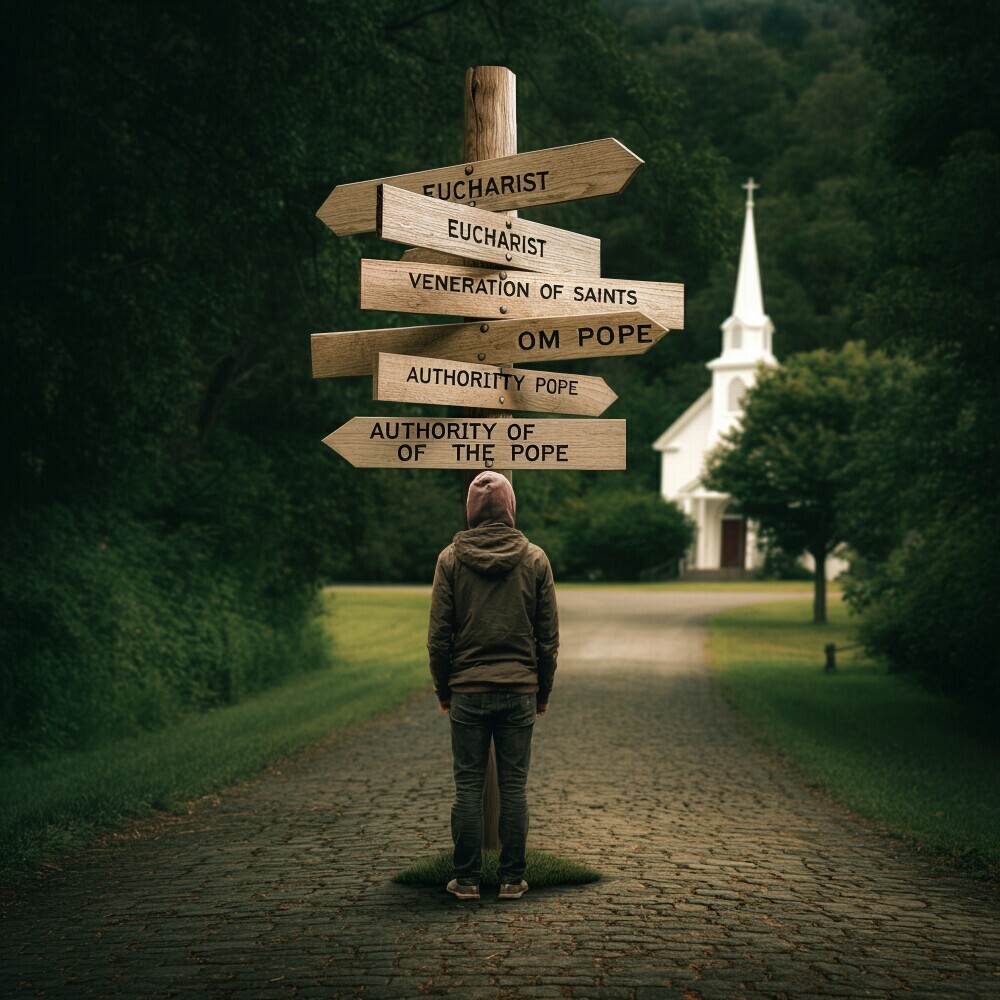
Common Misunderstandings About Catholics
Let’s tackle a few of the big ones:
1. “Catholics Worship Mary and the Saints.”
No, Catholics don’t worship Mary or the saints. Worship is reserved for God alone. Catholics honor Mary and the saints as role models and intercessors. It’s like asking a trusted friend to pray for you—except these “friends” are already in heaven.
2. “Catholics Believe in Works, Not Faith.”
This myth misrepresents Catholic teaching. Catholics believe salvation comes through God’s grace, received by faith, and expressed through good works (James 2:14-26). Faith alone isn’t enough (James 2:24); we must cooperate with grace by living lives of charity. Faith and works are not opposing ideas, but two sides of the same coin. Catholicism teaches that faith must be a living, active faith, continually seeking to do God’s will.
3. “The Pope Replaces Jesus.”
Not true. The Pope is seen as Christ’s representative on Earth, not His replacement. His role as the earthly shepherd is grounded in Jesus’ instruction to Peter: Matthew 16:18, “You are Peter, and on this rock, I will build my church.” John 21:15-17, “Feed my sheep,” Luke 22:31-32, “Satan has asked to sift you [Peter],…but I have prayed for you…strengthen your brothers.”
4. “Catholic Practices Are Unbiblical.”
Actually, Catholic practices have deep biblical roots and align with scriptural teachings. Confession? See John 20:23. The Eucharist? Check out John 6:53-56. Even Sacred Tradition is supported by Scripture (2 Thessalonians 2:15).
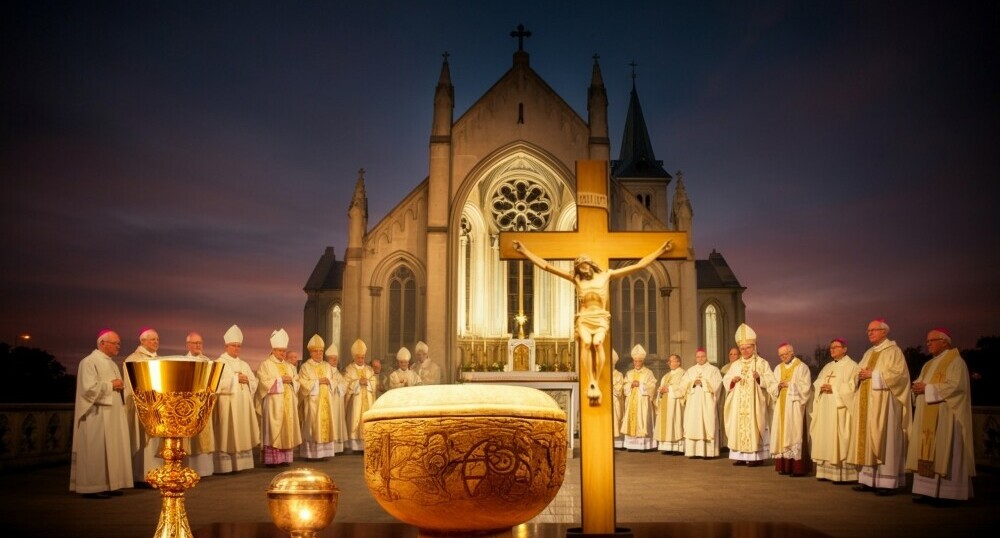
Catholicism’s Unique Role in Christianity
Catholicism isn’t just part of Christianity; it’s foundational to it. The Catholic Church has preserved the teachings of Christ through apostolic succession—an unbroken line of bishops stretching back to the apostles. This continuity safeguards the faith against distortions.
Sacraments are another hallmark of Catholicism. Through Baptism, Eucharist, and more, Catholics encounter God in tangible ways. These aren’t just rituals; they’re life-giving encounters with grace.
And let’s not forget the Church’s global impact. From founding universities and hospitals to leading charitable efforts, Catholicism has shaped the world in profound ways. Its influence reaches far beyond Sunday Mass.
In Conclusion
Despite differences in worship styles and theology, all Christians share a common faith in Jesus Christ. The Catholic Church, as the original and universal Church founded by Jesus, is the origin of the Christian family since the very beginning. It is not a separate religion or denomination but the oldest and most faithful expression of Christianity, carrying on the teachings and practices handed down from the apostles. So, the next time someone asks, “Are Catholics Christians?” you can confidently say yes. Let’s move beyond labels and embrace the unity that comes from our shared love for Jesus and His Gospel—I invite you to explore the Catholic faith and come home to the Church Jesus founded.
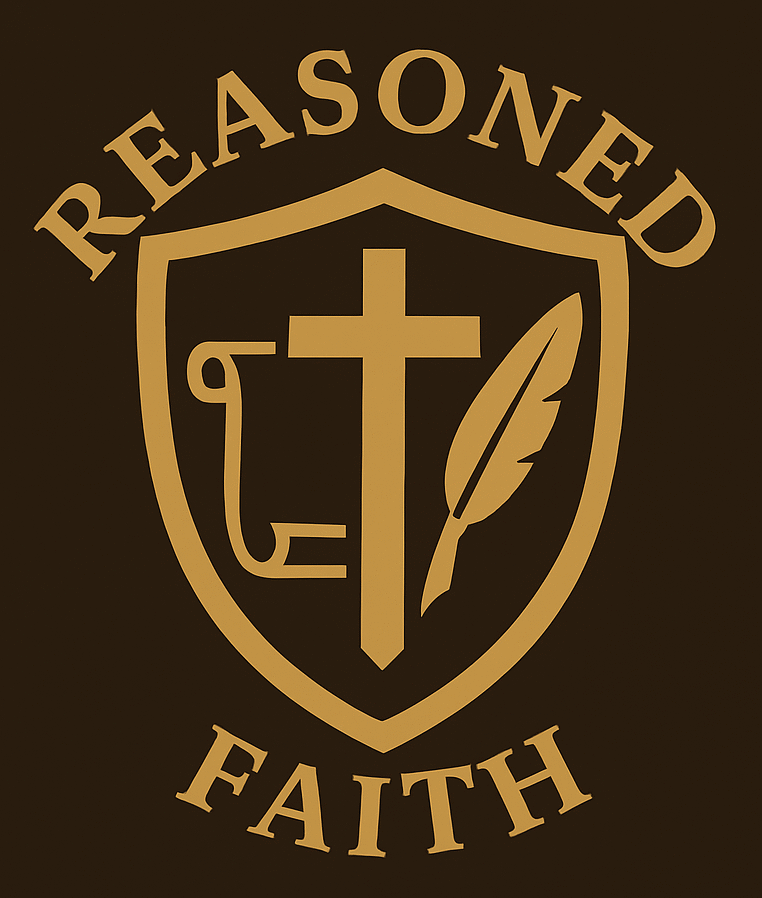
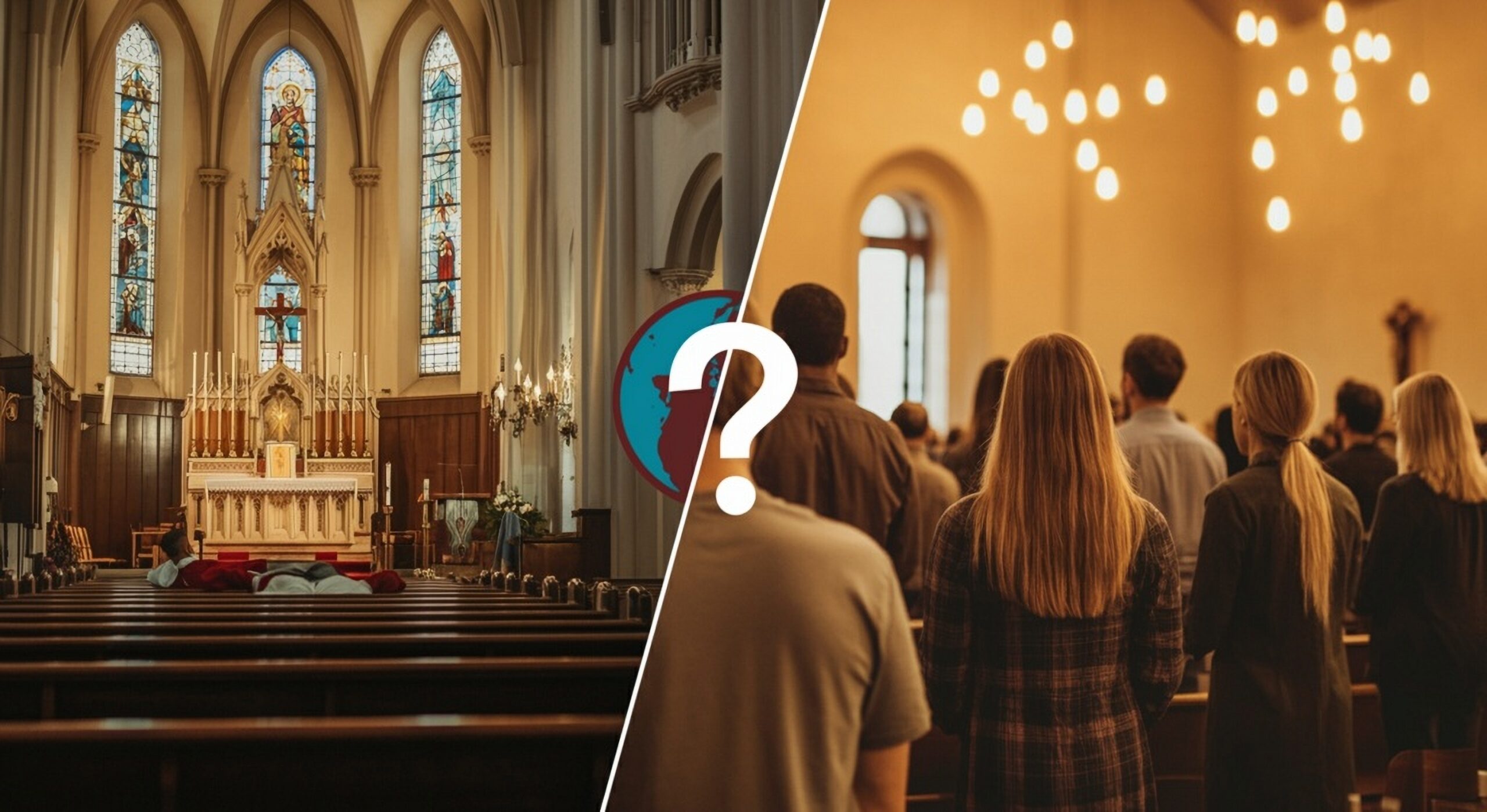
This blog does an excellent job addressing a common misunderstanding about Catholicism and its place within Christianity. It clearly explains that Catholics are indeed Christians, grounded in shared core beliefs like faith in Jesus Christ, the Trinity, and the Resurrection. The breakdown of common misconceptions, such as the roles of Mary, the saints, and the Pope, is especially helpful in clearing up confusion.
The historical and cultural reasons for the misunderstanding are well-explained, offering insight into why this question persists. Overall, it’s an informative and inviting piece that encourages unity among Christians and a deeper understanding of Catholic faith and tradition.
Sorry for the late response—I really appreciate your thoughtful comment. You’re spot on: a lot of the confusion comes from not realizing that Catholicism is the Christian faith, rooted in the same core truths every Christian holds—Jesus, the Trinity, the Resurrection. Clearing up those misunderstandings about Mary, the saints, and the Pope isn’t about winning arguments—it’s about showing how these things flow naturally from loving Christ and following Him in the Church He founded. I’m glad the post helped make those connections clearer. The more we understand each other, the more united we can be in what really matters.
Love is All There Is
In the article, you said, “Despite differences in worship styles and theology, all Christians share a common faith in Jesus Christ.” This is true, Looking for common ground is more constructive than searching for differences. Intention is foundational. I love finding out about the faith journey others are on. Allowing for differences is a small thing. Loving our neighbors as we love ourselves is huge.
Sorry for the late reply—your comment really deserved a quicker response. I totally agree: finding common ground and truly listening to each other’s faith journeys can build real bridges. Love for neighbor has to be front and center. At the same time, following Christ means following Him fully—including in the Church He founded. Unity in love doesn’t mean ignoring truth. It means walking together with open hearts while still pointing each other toward the fullness of what Jesus gave us through His Church.